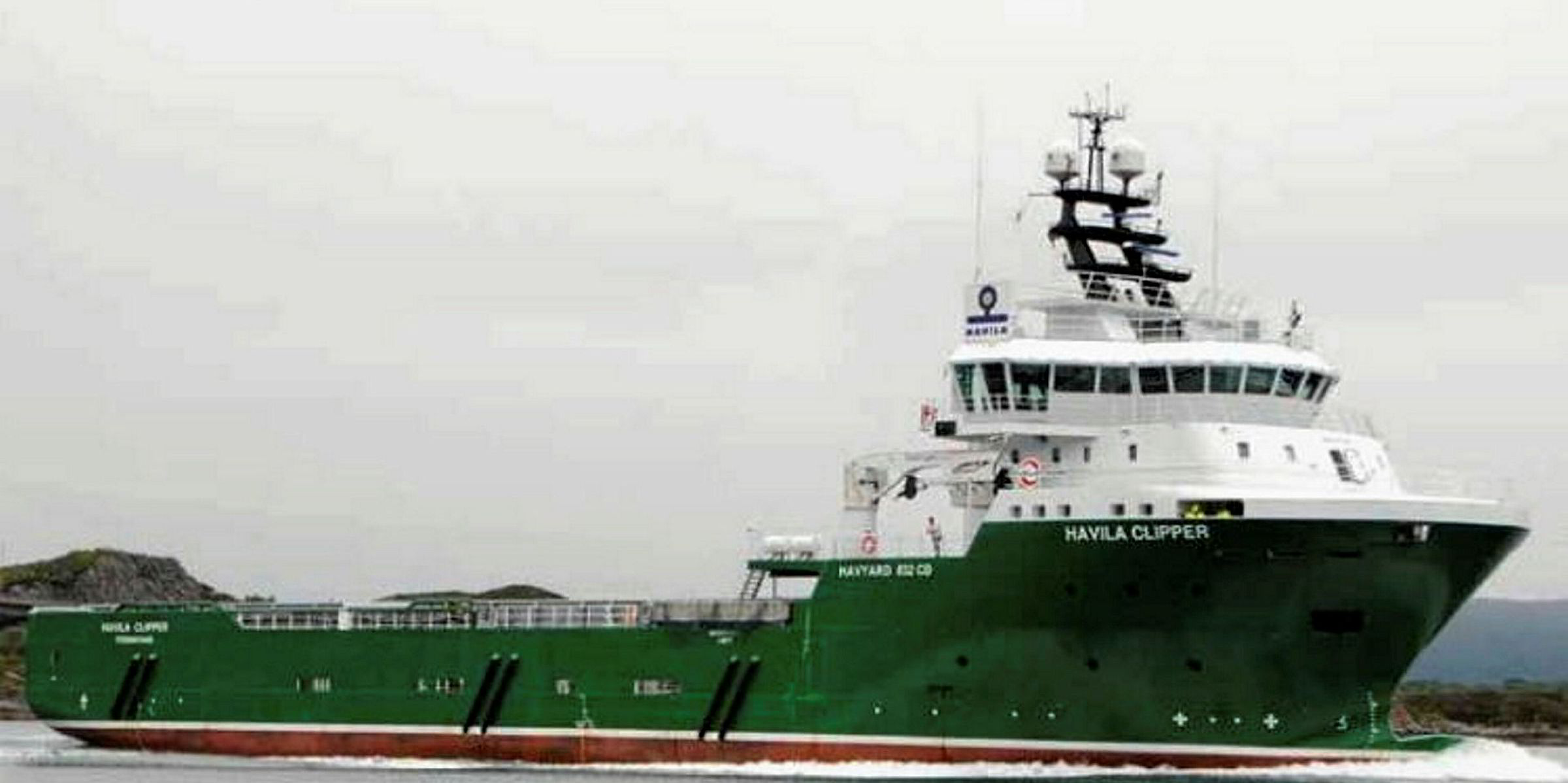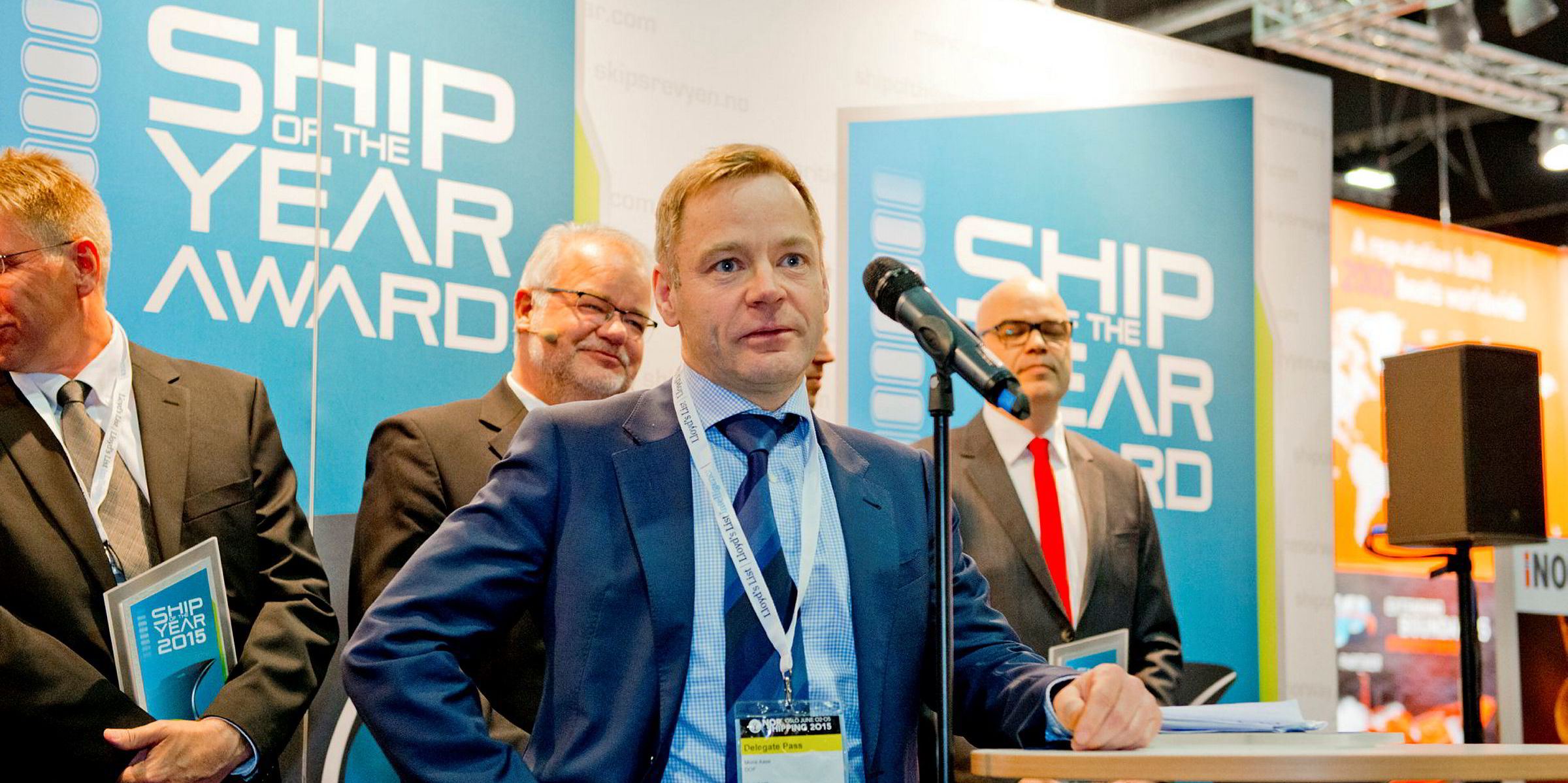Per Saevik's Havila Shipping has begun a new round of negotiations with its lenders at the same time as up to a dozen vessels face the prospect of being sold off.
Oslo-listed Havila completed a first restructuring in 2016 after the oil crash but chief executive Njal Saevik says a second round was always on the cards.
"In February 2019, we started the dialogue with the creditors to put in place a robust agreement that can take us through the crisis," Saevik wrote in the company's annual report.
He struck a philosophical tone in his note, stating that most offshore companies are in the same process as Havila, "or just before they have to knock on the same doors".
"This time, all parties involved should help create shipping companies that can survive the rest of the crisis. Probably someone will be gone," he wrote.
Havila, he said, will emerge a stronger company but will undergo a "steep" year in 2019.
"With a solid majority owner in the back, it can open up opportunities that make Havila Shipping ASA able to become a player in the restructuring of the sector that lies ahead of us," he wrote.
Stress test
One of the first obstacles Havila must overcome is negotiating the future of its fleet with its financiers.
Twelve of Havila's offshore support vessels have failed to pass a six-month stress test devised by the company and its lenders as part of its restructuring process, according to the 2018 report.
"The market has been weaker than expected and the situation is therefore more challenging than anticipated in the restructuring agreement executed in February 2017," Havila said in the document.
Vessels were deemed to have failed the performance test if they generated EBITDA of less than 2% of the vessel's debt during the six months between 28 August 2018 and 28 February 2019.
For these 12 vessels, interest payments will be postponed for interest accrued from 1 March until the "alternative" courses of action in the 2017 restructuring agreement are clarified or are renegotiated, Havila said.
These "alternative" strategies could see lenders taking ownership of vessels and cancelling the related debt; or vessels may be sold, where any uncovered debt will be converted to shares.
If not, part of the restructuring agreement may be renegotiated to find other ways of reducing the company's debt, the report said.
"Havila Shipping ASA has informed secured lenders and invited them to discuss the current situation," Havila said in the report.
"The main target is to find a long term, sustainable solutions for the company and its fleet.
"Havila Shipping ASA will continue its operations in a safe and secure manner, and have the intention that the negotiations should not have any impact on clients, employees or suppliers."
The company last year sold off all its non-core vessels after signing the restructuring agreement with its lenders in February 2017.
Fleet update
Havila operates 23 vessels, of which 17 are wholly owned.
Of the non-owned vessels, one rescue recovery vessel is leased and five platform supply vessels (PSVs) are operated under management agreements.
In addition, Havila owns five anchor handling vessels (AHTS), nine PSVs and three subsea vessels.
The company said that a subsea vessel that had been in layup was in operation as of 21 January, but three AHTSs are still stacked, having been laid up for all of 2018.







